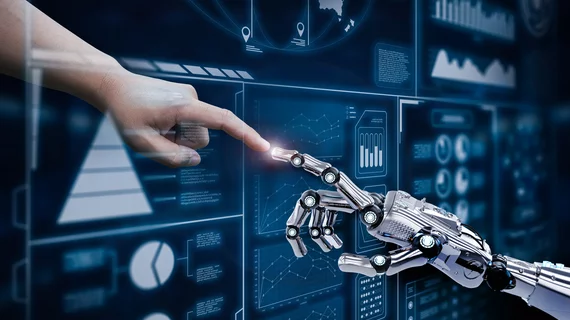ACR makes ‘major’ commitment to enhance radiologists’ access to generalizable AI
Artificial intelligence has made a big impact in radiology, but there remain a number of roadblocks slowing its transformation into a generalizable tool that works in all imaging settings.
Those challenges were explored during the American College of Radiology’s recent Imaging Informatics Summit and include limited access to a variety of exams, from many different machines, performed using various protocols. Patient privacy is also an issue, with radiologists seeking to keep data within hospital walls, while also testing on a diverse case set.
The ACR has made a “major” commitment to solving these problems, J. Raymond Geis, MD, senior scientists at the college’s Data Science Institute, wrote in a recent blog post.
By levering ACR’s machine learning technologies, including its TRIAD app for submitting images, ACR Connect, and national data registries, it is striving to establish a federated learning environment for radiology AI algorithms.
Such an infrastructure would allow rads to receive algorithms within institutional firewalls, train them on hospital-specific data and send the algorithm back to a central location. The approach, Geis noted, is being tested across seven sites with more joining soon.
“Through multiple different techniques, the central site combines each version of the algorithm to build what is hopefully an extremely robust, generalizable, final model, which will work reliably in all of our settings,” Geis wrote.
Read more from the ACR below.

